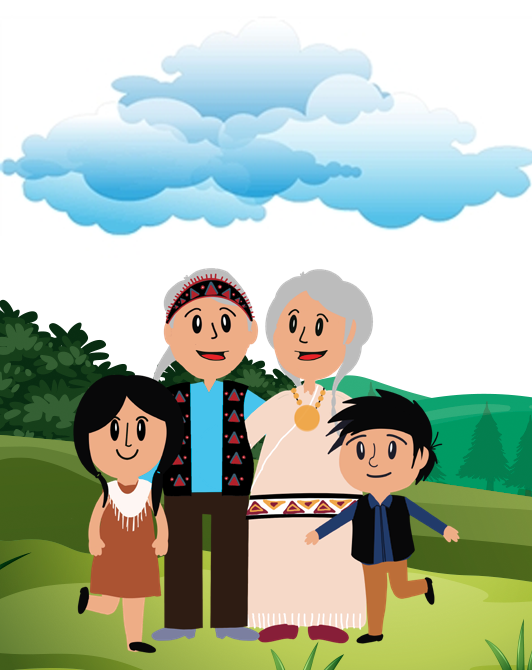TTR Ojibway Language Initiative
Greetings from Tootinaowaziibeeng Treaty Reserve No 292; we would like to welcome our entire audience, especially our TTR members and all the people that are seeking to begin the road of recovery and revitalization of our Ojibway Language.
ACKNOWLEDGEMENTS
We wish to thank Heritage Canada for providing the funding to support this important Language Initiative.
Special thanks also to:
Patricia Ningewance for allowing us to use her book Gookomo’s Language as an amazing guide and reference to introduce our community members from Basic to more Advanced Ojibway levels. Patricia is an Ojibwe person from Lac Seul First Nation in northwestern Ontario. She has traveled throughout Anishinaabe country, where Ojibwe is spoken.
Bomgiizhik (Isaac Murdoch) for allowing us to use his book “The Trail of Nenaboozhoo” and its beautiful stories. Bomgiizhik is from the Serpent River First Nation in Anishinaabek Territory on the North Shore of Lake Huron.
Marleen Ironstand, for all her time and assistance with the translations, recordings, and editing of all the program materials. Marleen is an Elder from TTR who was instrumental in executing this program.
Lillian Lynxleg, for her support in the translation and recordings of the materials, as well as for helping us understand the importance of location and dialects of the Ojibwe language. Lillian is an Elder and is the Ojibway Language teacher at TTR’s Chief Clifford Lynxleg Anishinaabe School.
Madeleine Whitehawk, for assisting us with the recording and explanation of the tutorials and recordings. Madeline is an Elder and teacher from the Cote First Nation who has actively worked and advocated for language recovery and preservation for many years. Madeline helped us bring the educational materials into the context of the local dialect of our area.
Chief Barry McKay and the TTR Council, for their support.
Thank you all for your generosity and for furthering our language.
Disclaimer
Some of the educational materials in this language program have been edited, adapted, and modified from their original form to ensure compatibility with the local dialect.

